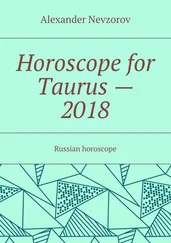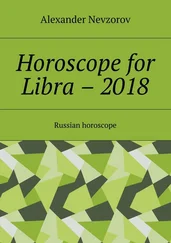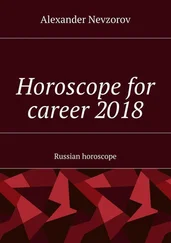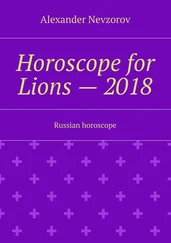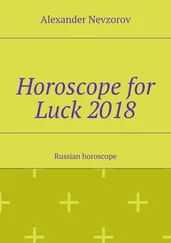"Springhall has been asked to recommend someone for an assignment. We have discussed various people and think that you might fit the bill. I know nothing about the assignment save that it will be abroad and will be very dangerous. "
I think that was all Fred Copeman did in fact know. He was in this case merely acting as the mouthpiece for Springhall. Though the latter remained in the background, his role as talent spotter and recruiter was clear. I always- and events have so far not proved me wrong-regarded him as the contact man for the Red Army in the British Communist Party. Gossip in Spain went so far as to state that he had held Red Army rank in his time. As far as his part in my recruitment went, I know no more than I have already stated. As any reader of the newspapers will remember, Springhall was later tried and convicted for a similar offence during the war. Fred Copeman's part in these preliminary flirtations was obscure. He was, I believe, merely on the fringe of the Soviet net and was used by Springhall and the others as an innocent cover for their contact work. Certainly my subsequent questioning of him seemed to show that he was as much in the dark as I was. Later, of course, Cope- man split with the Party and joined the Oxford Group.
Despite the vagueness of the offer I jumped at it. Looking back on the whole affair in cold blood, it is a little difficult to understand why I should have accepted such an assignment with no notion that I was working for or for what purpose. If someone had told me at the time that after six months at the work I should still have no idea as to the identity of my masters, I should have laughed at them. But such is in fact the case, and I think that many of those who were on the fringes of, for example, the Canadian case must have found themselves in a similar predicament.
However, I soon realised that the work for which I was destined was illegal, and very soon afterwards it became clear to me that I was ultimately intended for espionage work. It was soon apparent that I could not be working for the British Communist Party. I thought that perhaps I was working for the German Communist Party (K. P. D. ) or perhaps for the Comintern (as regards the inner workings of the latter I knew little more than did the average reader of the papers). But here I am slightly outrunning events. I may ultimately have been a good spy, but as regards my early career I was certainly an innocent abroad.
After my acceptance of the offer Copeman told me to go to an address in St. John's Wood. There I went one fine October morning and duly found myself inside the flat with the green door.
I have already related the instructions that I received there. They were not illuminating, and I learned no thin, much more from the respectable housewife with a slight foreign accent who interviewed me. Her name I never knew for certain, though I have my own ideas on the subject. She was certainly friendly with, if not actually related to, my contact and spy master, or rather spy mistress, in Switzerland. Our business was done with briskness and despatch. I do not suppose that I was in the house more than ten minutes. I was dealt with by the lady of the house as briskly and impersonally as she would have engaged a housemaid.
Apart from the directions as to where I was to go, I also received a few further instructions to enable me to make contact with the person who was to deal with me in the future. I was to present myself outside the General Post Office in Geneva. (A favourite rendezvous , as a G. P. O. is easily found and provides an admirable excuse for loitering. ) I was to be wearing a white scarf and to be holding in my right hand a leather belt. As the clock struck noon I would be approached by a woman carrying a string shopping bag containing a green parcel, and holding an orange in her hand. One would have though: that this would have been sufficient to enable anyone to contact anyone, even an unknown, in the middle of a Swiss street. But to avoid any possibility of error the whole rendezvous was made even more precise. The woman would ask me, in English, where I had bought the belt; and I was to reply that I had bought it in an ironmonger's shop in Paris. Then I was to ask her where I could buy an orange like hers, and she was to say that I could have hers for an English penny. Hardly sparkling dialogue, but sufficient to ensure that the meeting was foolproof and an example of the usual thoroughness of my employers. For a similar type of rendezvous I refer the reader to the details of the contact which Professor Nunn May was to make with an unknown outside the British Museum. The technique and indeed the choice of locale are exactly parallel.
I left this snug little St. John's Wood spy nest in some confusion of mind. I had no objection to the illegality and obviously clandestine nature of the mission which I had accepted. Looking back, I do not think that espionage even entered my head at the time. The average person does not think immediately of a spy mission when he is offered a job, even when it is hedged round with such Oppenheim secrecy as this one was. Nowadays I suppose that one would merely think one had fallen in with a particularly well-organised gang of black marketers. At that time, if I did think, I probably imagined that I had been cast for some Scarlet Pimpernel-like role of rescuing prisoners from Dachau. In fact I do. not believe that I thought at all. I was pleased enough to be offered a job, and satisfied that since it came from the Party it would not clash with my political opinions.
It was as neat a piece of recruiting as I met throughout my career with the Russians. Admittedly I was a small fish and an easy one to hook and land at that; but the technique showed considerable experience. First the offer of the job which, though illegal, was in fact straight Party work; then the change of assignment to something quite unknown but obviously even more illegal. The fish was well hooked and my employers could be certain that if I accepted a shot in the dark such as this Geneva appointment must appear to a tyro, they could be equally- sure that I would not balk at anything further. Even if I did, what had they to lose? I could have gone round to Scotland Yard with my story, and they would be hardly a pennyworth the wiser. All I could have told them was an address in St. John's Wood (which I afterward checked and found to be one of impeccable, if foreign, respectability) and a confused story of a complicated rendezvous which in all probability they would have put down to the maunderings of an unbalanced individual with spy mania. It is certain that, had I blown the gaff, the rendezvous would have been cancelled and any special branch officer who had undertaken the long and tedious journey to Geneva would not have been rewarded by the sight of a woman laden with an orange.
Confusion of mind or no confusion of mind, I resolved to go on with the whole affair, and returned home to collect my kit and make the necessary arrangements for a visit to Switzerland. I had not much time, as the date of the rendezvous was only a few days ahead. Luckily in those days travel was easy and I soon found myself on the boat crossing the Channel. My last crossing had been on an equally clandestine mission- to fight for what 1 thought was freedom. Then I had my comrades with me. This time I was alone and moving into the dark.
A hardened spy regards a rendezvous with his contact as a matter of routine. If the contact is successful, so much the better. If it fails, then there are varieties of reasons which may have occasioned the failure, only a few of which may affect the personal safety or comfort of the spy himself. The human character is infinitely adaptable, and after a short time I regarded clandestine meetings and undercover assignments as the normal course of duty. It would be idle to pretend, however, that I went to this, my first assignment, with complete sangfroid. My attitude of mind was similar to that of the debutante at her first dance: extreme nervousness with a lively anticipation of pleasure and excitement to come.
Читать дальше




